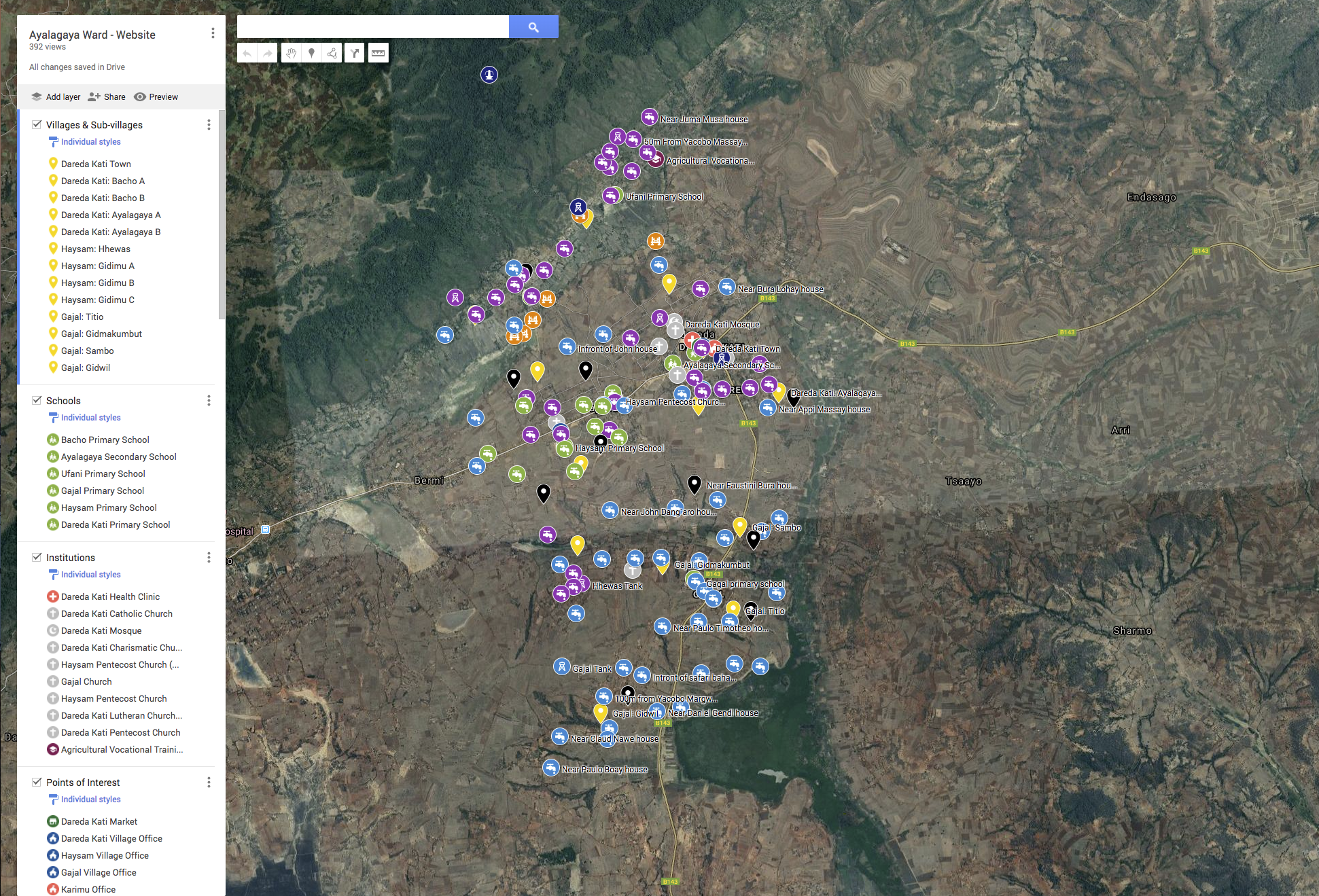
facts
Facts
Location
Since its founding in 2008, Karimu has worked primarily in the Babati District of Tanzania’s Manyara Region. Districts in Tanzania are divided in large administrative areas, called Wards. Karimu initially focused mainly on the village of Dareda Kati - the largest village of the Ayalagaya Ward, but, slowly, expanded its operations into the other villages of Ayalagaya: Haysam and Gajal. Ayalagaya Ward encompasses some 50 square kilometers (19.3 square miles) that are home to roughly 2400 households.
In 2018, Karimu developed a 5-year strategic plan describing how it will alleviate poverty in Ayalagaya Ward, how it will successfully exit the Ward, and how it will start applying its successful model to the communities of a neighboring Ward: Arri.
In 2019, Karimu expanded its operations into Arri Ward. It encompasses some 120 square kilometers (43.3 square miles) that are home to approximate 3300 households.
Explore our Interactive Map
Governing Structure
The Ayalagaya Ward has three villages. Villages in Tanzania represent large areas of land which are administered together. These villages are divided into sub-villages which, in turn, tend to represent an identifiable set of households. Together, Dareda Kati, Haysam, and Gajal have 13 sub-villages. Sub-villages as well as villages are democratically structured. The people elect representatives to serve on the sub-village and village councils that deliberate before making most of the decisions for their communities.
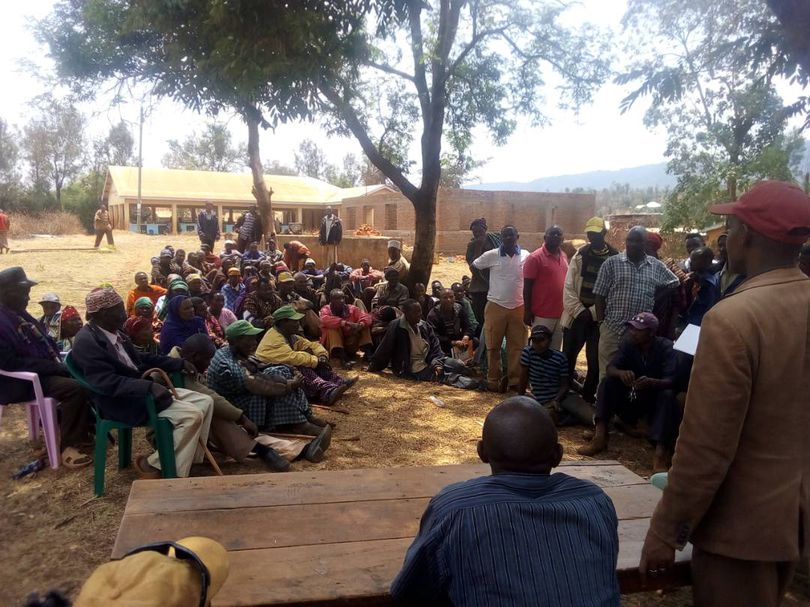
The Arri Ward has 7 villages: Dudiye, Arri, Endasago, Dohom, Sharmo, Managha, Tsaayo. Together they have 23 sub-villages.
Population and Language
The population of Ayalagaya Ward is dominated by a people known as the Iraqw. The ward includes a huge Catholic congregation and much smaller numbers of Lutherans and Pentecostals, yet the Iraqw Christians have had a reputation among their fellow Tanzanians for stubbornly mixing Christian faith with traditional tribal beliefs and practices often dismissed as “primitive”. Closely related to this stigmatization is the fact that the Iraqw have also had the reputation in Tanzania of being among the most resistant of the country’s 120 tribes to what in Swahili is called maendeleo: development or modernization.
Like so many claims made about minority populations everywhere, these dissolve upon close inspection. For close to a decade, Karimu has consistently enjoyed warm hospitality and eager cooperation with the Iraqw.
The population also includes tiny numbers of Sunni and Shia Muslims. The troubling rise in interfaith tensions observed in parts of Tanzania—as throughout much of the world—is not evident here.
Swahili is spoken by all but the most elderly of the Iraqw. The great majority of the Iraqw also speak their own tribal language.
The population of Arri Ward is also dominated by the Iraqw. As in Ayalagaya, most of the villagers go to Catholic churches. The ward has also a smaller number of Lutherans and Pentecostals, and an even smaller number of Muslims.
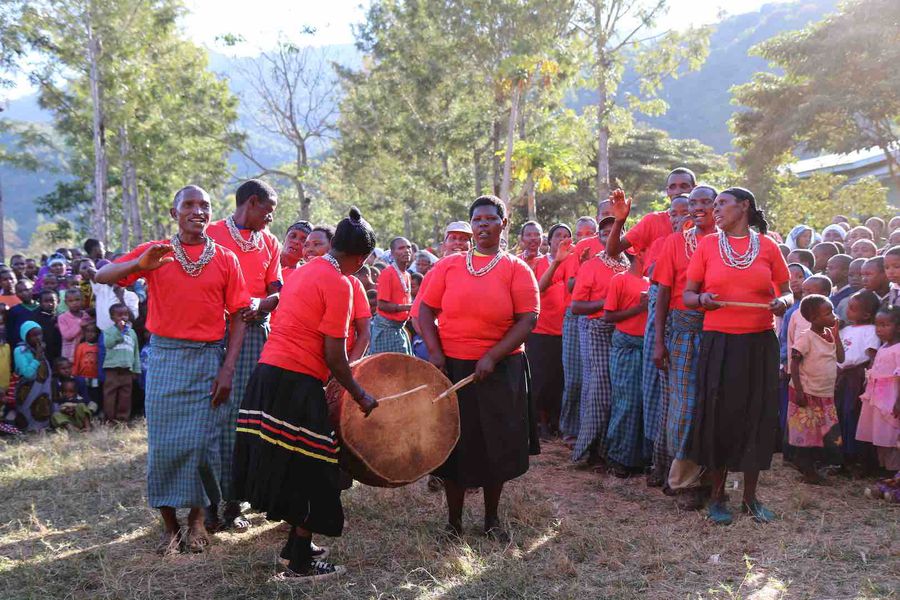
Making a Living
Most residents live as subsistence farmers. They also raise chickens, cows, and pigs to help feed the family. Even teachers, whose salaries—extremely modest by the standards of developed countries—greatly exceed the earnings of most locals, devote many hours to raising crops and livestock on their small properties. Maize, beans, bananas and tomatoes are commonly grown, but the warm and intermittently humid climate and rich soil will accommodate almost any crop. The more prosperous or ambitious farmers also grow many tropical fruits. Crops are transported by oxcart.
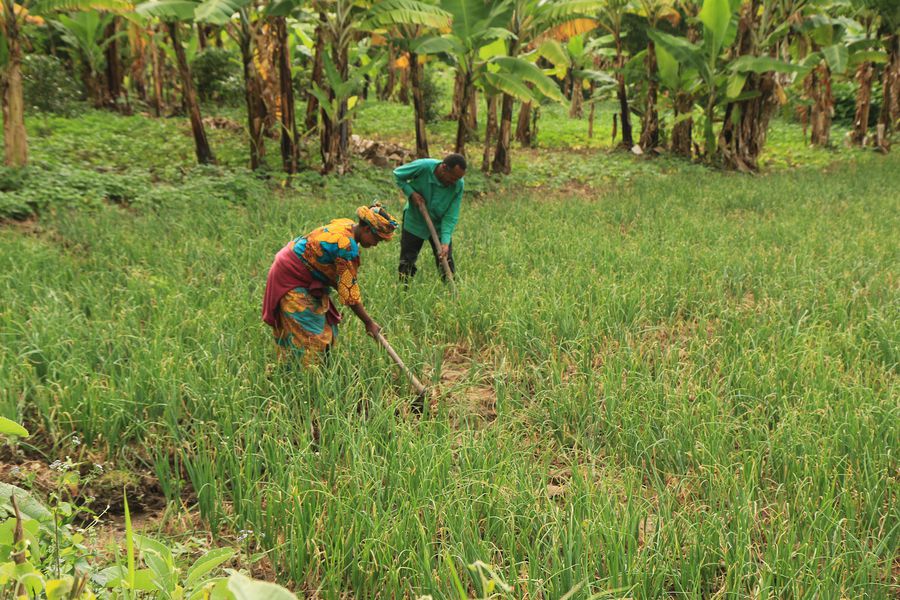
Water
Water as such is not lacking in Ayalagaya and Arri Wards because of the generous seasonal rainfall that is most easily collected on or beneath the wall of the Rift Valley escarpment that forms one of the ward’s boundaries.
In 2019 Karimu completed a water project in Ayalagaya Ward. We distributed over 90 water points with two faucets each throughout the ward, so no one has to walk more than 500 meters to fetch water for their families.
The daunting problems for the ward are distributing the water and ensuring its cleanliness. The overwhelming majority of residents do not have access to clean water, impacting their health and the agricultural production on which they depend.
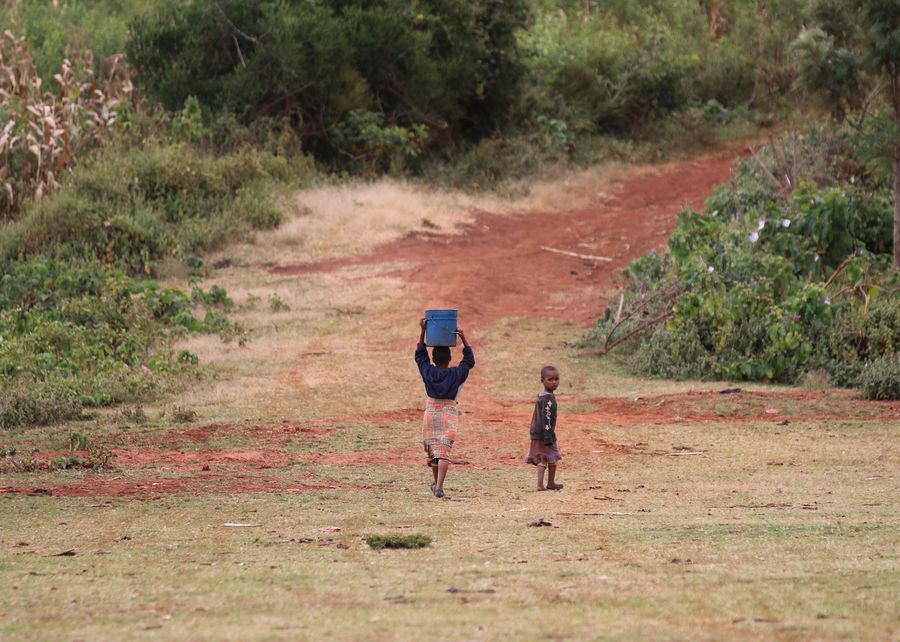
Transportation
Almost everyone must travel by foot. It is not unheard of for a child needing to get to school or for a pregnant woman needing medical care to have to walk for two hours.
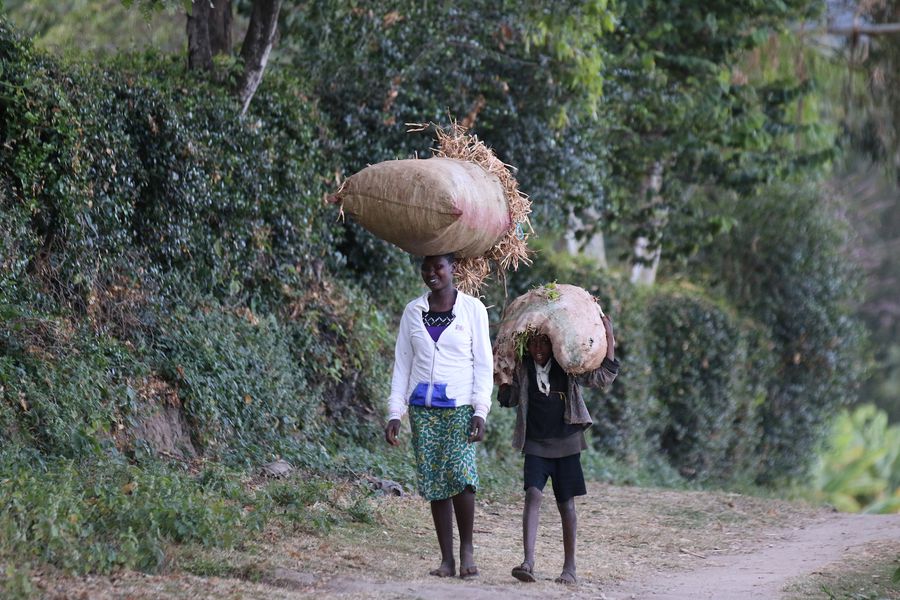
Families
As in poor agricultural communities everywhere, families are large so that many hands can share the work. Attending primary school (grades 1-7) is mandatory and free, but many families struggle to cover the costs of school uniforms and material and to compensate for labor around the house or on the farm that is lost when a child attends school.
The elderly command a level of respect that astonishes visitors from the West. They are vital to maintaining stability in the family. When parents want to see their children educated, the elderly understand that education, as a leading edge of modernization, may ultimately bring changes that go far beyond the need to make up for a pair of hands lost to farm work.
The elderly pass on to the young not only a depth of commitment to the community that is likewise startling to Western visitors, but the traditional songs and dances featured in every public gathering. These include even the small gatherings in local homes to which volunteers are often invited and which reinforce the bonds of community.
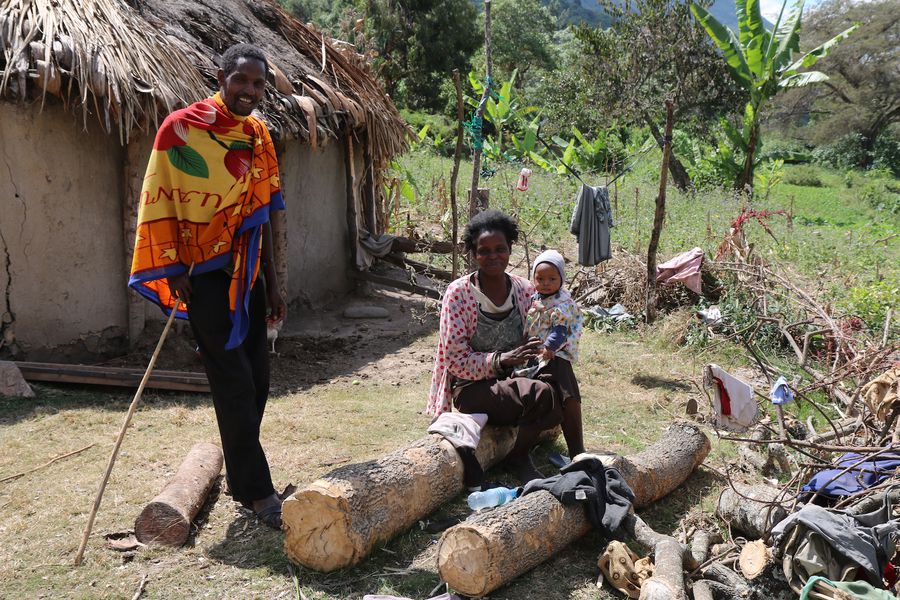
Lack of Resources
The relative failure of the Tanzanian government to address poverty was described in 2009 by Karimu’s great friend Julian Page, of Livingstone Tanzania Trust, in this YouTube clip.
What Julian does not have time to say is that the Tanzanian government is ultimately dependent on the wealth of its people as a tax base. However, according to the International Monetary Fund’s October 2017 estimates (http://www.imf.org/external/datamapper/NGDPDPC@WEO/OEMDC/ADVEC/WEOWORLD), Tanzania’s per capita GDP slightly exceeds one thousand U.S. dollars, which is almost double Afghanistan’s—but barely one-sixtieth that of the United States.](http://)
Facts
Location
Since its founding in 2008, Karimu has worked primarily in the Babati District of Tanzania’s Manyara Region. Districts in Tanzania are divided in large administrative areas, called Wards. Karimu initially focused mainly on the village of Dareda Kati - the largest village of the Ayalagaya Ward, but, slowly, expanded its operations into the other villages of Ayalagaya: Haysam and Gajal. Ayalagaya Ward encompasses some 50 square kilometers (19.3 square miles) that are home to roughly 2400 households.
In 2018, Karimu developed a 5-year strategic plan describing how it will alleviate poverty in Ayalagaya Ward, how it will successfully exit the Ward, and how it will start applying its successful model to the communities of a neighboring Ward: Arri.
In 2019, Karimu expanded its operations into Arri Ward. It encompasses some 120 square kilometers (43.3 square miles) that are home to approximate 3300 households.
Explore our Interactive Map
Governing Structure
The Ayalagaya Ward has three villages. Villages in Tanzania represent large areas of land which are administered together. These villages are divided into sub-villages which, in turn, tend to represent an identifiable set of households. Together, Dareda Kati, Haysam, and Gajal have 13 sub-villages. Sub-villages as well as villages are democratically structured. The people elect representatives to serve on the sub-village and village councils that deliberate before making most of the decisions for their communities.

The Arri Ward has 7 villages: Dudiye, Arri, Endasago, Dohom, Sharmo, Managha, Tsaayo. Together they have 23 sub-villages.
Population and Language
The population of Ayalagaya Ward is dominated by a people known as the Iraqw. The ward includes a huge Catholic congregation and much smaller numbers of Lutherans and Pentecostals, yet the Iraqw Christians have had a reputation among their fellow Tanzanians for stubbornly mixing Christian faith with traditional tribal beliefs and practices often dismissed as “primitive”. Closely related to this stigmatization is the fact that the Iraqw have also had the reputation in Tanzania of being among the most resistant of the country’s 120 tribes to what in Swahili is called maendeleo: development or modernization.
Like so many claims made about minority populations everywhere, these dissolve upon close inspection. For close to a decade, Karimu has consistently enjoyed warm hospitality and eager cooperation with the Iraqw.
The population also includes tiny numbers of Sunni and Shia Muslims. The troubling rise in interfaith tensions observed in parts of Tanzania—as throughout much of the world—is not evident here.
Swahili is spoken by all but the most elderly of the Iraqw. The great majority of the Iraqw also speak their own tribal language.
The population of Arri Ward is also dominated by the Iraqw. As in Ayalagaya, most of the villagers go to Catholic churches. The ward has also a smaller number of Lutherans and Pentecostals, and an even smaller number of Muslims.

Making a Living
Most residents live as subsistence farmers. They also raise chickens, cows, and pigs to help feed the family. Even teachers, whose salaries—extremely modest by the standards of developed countries—greatly exceed the earnings of most locals, devote many hours to raising crops and livestock on their small properties. Maize, beans, bananas and tomatoes are commonly grown, but the warm and intermittently humid climate and rich soil will accommodate almost any crop. The more prosperous or ambitious farmers also grow many tropical fruits. Crops are transported by oxcart.

Water
Water as such is not lacking in Ayalagaya and Arri Wards because of the generous seasonal rainfall that is most easily collected on or beneath the wall of the Rift Valley escarpment that forms one of the ward’s boundaries.
In 2019 Karimu completed a water project in Ayalagaya Ward. We distributed over 90 water points with two faucets each throughout the ward, so no one has to walk more than 500 meters to fetch water for their families.
The daunting problems for the ward are distributing the water and ensuring its cleanliness. The overwhelming majority of residents do not have access to clean water, impacting their health and the agricultural production on which they depend.

Transportation
Almost everyone must travel by foot. It is not unheard of for a child needing to get to school or for a pregnant woman needing medical care to have to walk for two hours.

Families
As in poor agricultural communities everywhere, families are large so that many hands can share the work. Attending primary school (grades 1-7) is mandatory and free, but many families struggle to cover the costs of school uniforms and material and to compensate for labor around the house or on the farm that is lost when a child attends school.
The elderly command a level of respect that astonishes visitors from the West. They are vital to maintaining stability in the family. When parents want to see their children educated, the elderly understand that education, as a leading edge of modernization, may ultimately bring changes that go far beyond the need to make up for a pair of hands lost to farm work.
The elderly pass on to the young not only a depth of commitment to the community that is likewise startling to Western visitors, but the traditional songs and dances featured in every public gathering. These include even the small gatherings in local homes to which volunteers are often invited and which reinforce the bonds of community.

Lack of Resources
The relative failure of the Tanzanian government to address poverty was described in 2009 by Karimu’s great friend Julian Page, of Livingstone Tanzania Trust, in this YouTube clip.
What Julian does not have time to say is that the Tanzanian government is ultimately dependent on the wealth of its people as a tax base. However, according to the International Monetary Fund’s October 2017 estimates (http://www.imf.org/external/datamapper/NGDPDPC@WEO/OEMDC/ADVEC/WEOWORLD), Tanzania’s per capita GDP slightly exceeds one thousand U.S. dollars, which is almost double Afghanistan’s—but barely one-sixtieth that of the United States.](http://)



